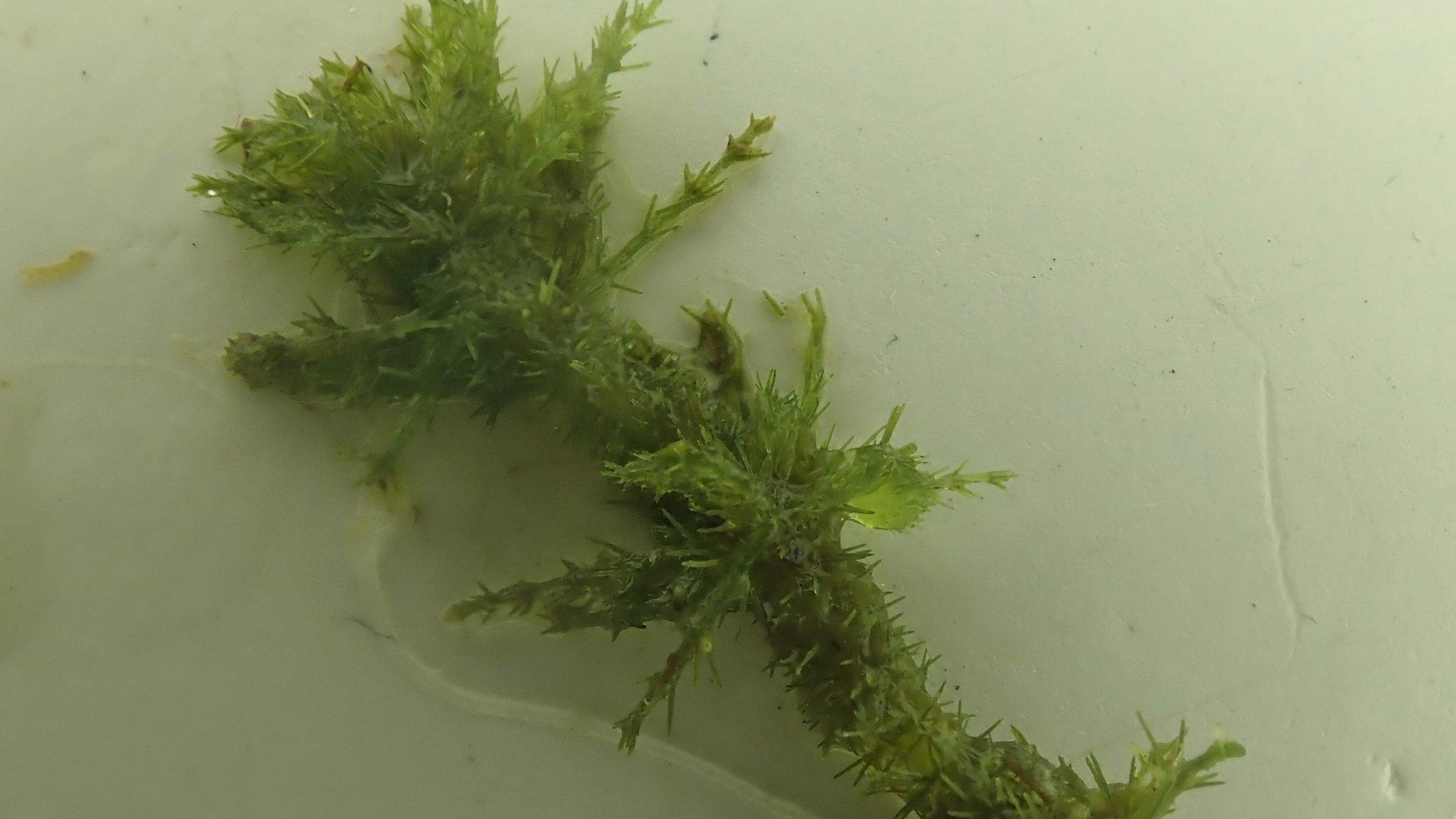Dragonflies thriving at former Teesside industrial site
- Published
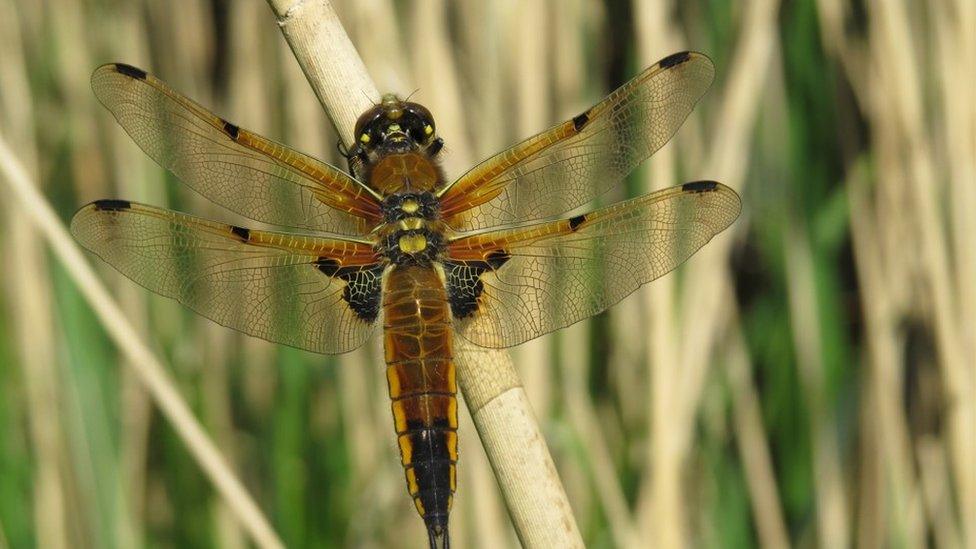
This spotted chaser dragonfly is one of four that have emerged at RSPB Saltholme
A record ten species of dragonfly have been seen at a Teesside nature reserve.
A new boardwalk has opened at RSPB Saltholme so visitors can see the colourful insects close up.
Rising numbers of species have made the site home since the creation of freshwater pools in 2021, along with six species of damselfly.
RSPB Director Michael Copleston said dragonflies were "incredible insects" who, as hunters of mosquitoes, were "important for humans."
The species are among the largest flying insects, dating back to before the dinosaurs, and thrive in unpolluted wetland habitats.
A recent report revealed they were bucking the trend in declining species in the UK.
The British Dragonfly Society report , externalrecorded a more than 40% increase in 19 resident and regular migrant species, while only 11%, or five species, have declined.
Last year, a Southern Migrant Hawker dragonfly was recorded at Saltholme for the first time.
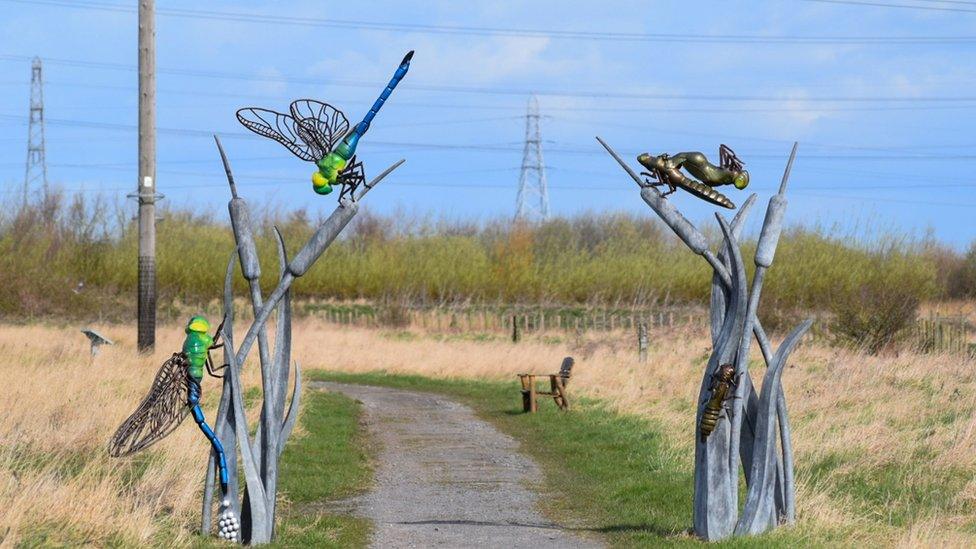
A sculpture created by Andrew McKeown stands close to the new boardwalk at RSPB Saltholme.
The boardwalk enables visitors to get a much closer to view of the reserve's 14 pools, which are used as breeding and hunting grounds by dragonflies and damselflies.
Site warden Ed Pritchard said: "Not only are the dragonflies striking to see as they perform their aerial displays, they also make our outdoor experiences more enjoyable by reducing those pesky mosquitoes and gnats.
"I really hope this new boardwalk will encourage people to learn more about the importance of dragonflies and give them the chance to see these amazing creatures in action."
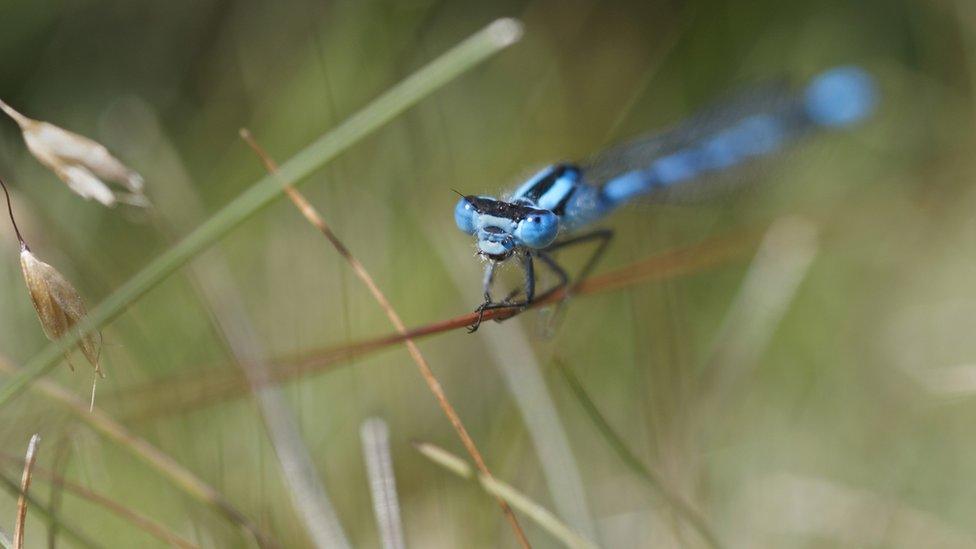
A common blue damselfly is another species living happily on Teesside

Follow BBC North East & Cumbria on Twitter, external, Facebook, external and Instagram, external. Send your story ideas to northeastandcumbria@bbc.co.uk, external.
Related topics
- Published6 April 2023
- Published7 September 2021
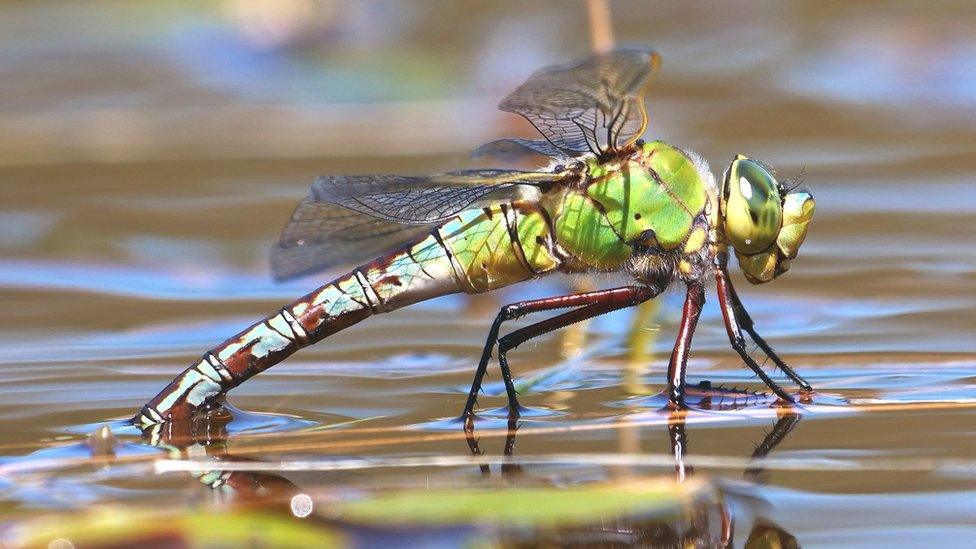
- Published7 September 2021
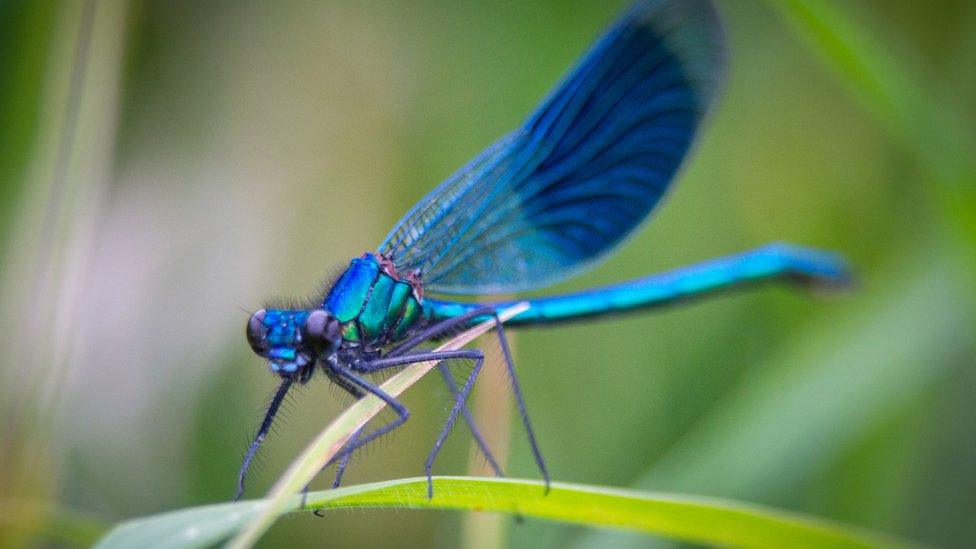
- Published6 March 2021
